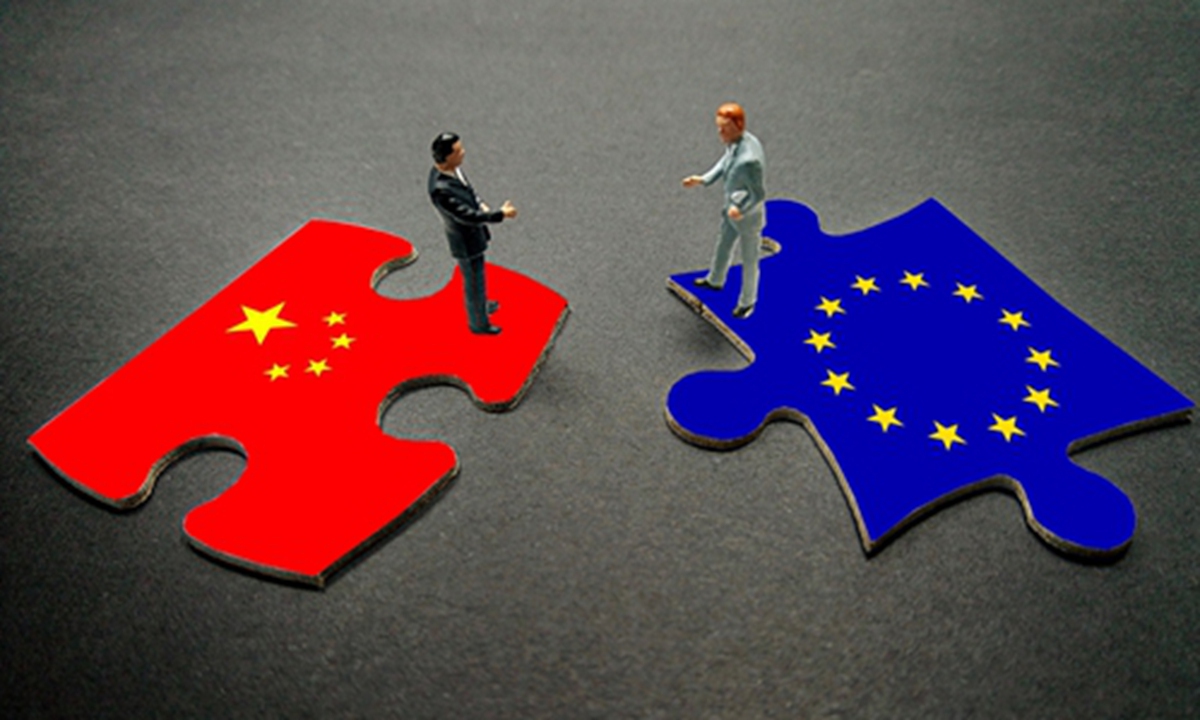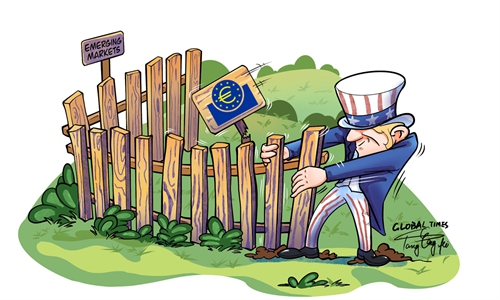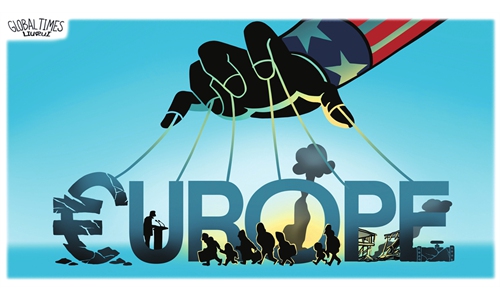
China-EU relationship Photo: VCG
Multiple leaders from European countries and the EU have recently announced or are planning trips to China, with Spanish Prime Minister Pedro Sanchez announcing that he will visit China next week. Media reported that French President Emmanuel Macron and some EU leaders are also planning to visit China.Experts said that China's model of resolving international disputes as a promoter of peace, which is different from that of the US, which is adding fuel to the fire, has been widely recognized by the international community and reflects Europe's eagerness to see the emergence of peace talks for the ongoing Ukraine crisis that deeply troubles the continent.
According to Reuters, Sanchez will visit China next week. Sanchez told reporters in Brussels, where he was attending an EU summit on Thursday, that he would "find out first-hand what [China's] position is for peace in Ukraine, and transmit the message that the Ukrainians will be the ones who establish the conditions for peace."
The news was later confirmed by Minister for the Presidency Felix Bolanos in an interview with radio station Cadena Ser. "China has a key role to play in mediating the war."
"China and Spain enjoy sustained, sound and stable development of relations," Chinese Foreign Ministry spokesperson Wang Wenbin said Thursday when asked about the prime minister's visit. "The two leaders maintain good communication," he added.
Spain will take over the rotating presidency of the Council of the EU from Sweden later this year.
At the same time, Politico reported that European Commission President Ursula von der Leyen will travel with French President Macron on his planned trip to China in April. European Union foreign policy chief Josep Borrell also announced on Friday that he would visit China soon, although the date is still to be finalized, Reuters reported.
Experts believe that the development of China-EU relations is an objective and realistic necessity. In the post-pandemic era, the global economy remains sluggish, and Europe realizes that the US-suggested "decoupling" has negative impact on Europe, Gao Jian, director of the Center for European Think Tank Studies at Shanghai International Studies University, told the Global Times.
Therefore, there is huge demand for the EU to develop bilateral trade and economic relations with China, Gao noted.
In addition, there is no doubt that the current Russia-Ukraine crisis has a significant impact on Europe.
In February, China released a 12-point position paper called "China's Position on the Political Settlement of the Ukraine Crisis" and called for the cessation of hostilities and resumption of peace talks, ending unilateral sanctions and abandoning the Cold War mentality.
China's 12-point peace proposal has gained widespread recognition and attention from the international community, experts said. As Europe has paid a heavy price due to the Russia-Ukraine conflict, and mainstream voices in Europe now recognize the need for strategic autonomy, they are eager to promote peace and negotiations to alleviate the adverse effects brought by the crisis.
In an article entitled "We can't lose China, EU leaders say" by Politico's Europe site, one EU official said "China is not perfect, but we might need it one day," and "several member states share this assessment." During the EU summit, Luxembourg Prime Minister Xavier Bettel called for continued engagement with Beijing to try to bring the Chinese closer.
China is in a unique position in promoting the peaceful resolution of the Ukraine crisis, Cui Hongjian, director of the Department of European Studies at the China Institute of International Studies, told the Global Times on Sunday.
"European countries know that China not only has the ability but has also shown a willingness to offer a peace proposal for the Ukraine crisis. They want to express Europe's position on the issue," Cui said.
Now, China and Europe have an opportunity to work together. However, the extent of progress and the possibility of further breakthroughs depend on future discussions, observers pointed out.
It is foreseeable that the US will exert influence on China-Europe relations and cooperation due to its deep involvement in the Ukraine crisis, experts warned.
"The US will continue to use NATO mechanisms to maintain its basic position in the conflict. Ultimately, the US hopes that the conflict continues, as it believes it can gain significant benefits from it," Gao said. "The US does not want to see China play a positive role in the Russia-Ukraine conflict, especially as a promoter of peace, building a different approach to resolving international disputes than the US model."
At this point, it remains to be seen whether Europe can withstand this pressure and truly pursue its own interests, experts said.




